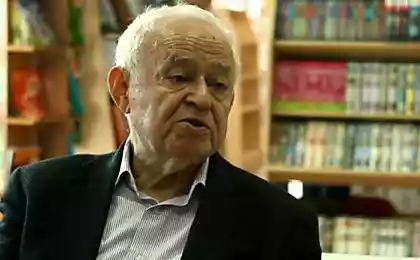976
Hard antigeyskie laws
The bill to ban promotion of homosexuality among minors, passed by the State Duma on January 25 in first reading, his supporters called a measure to protect traditional family values. At the same time as one of the main arguments is the experience of other countries. To see what further action can be justified by international experience, we have summarized the experience of countries with the most stringent laws antigeyskimi.
Sudan
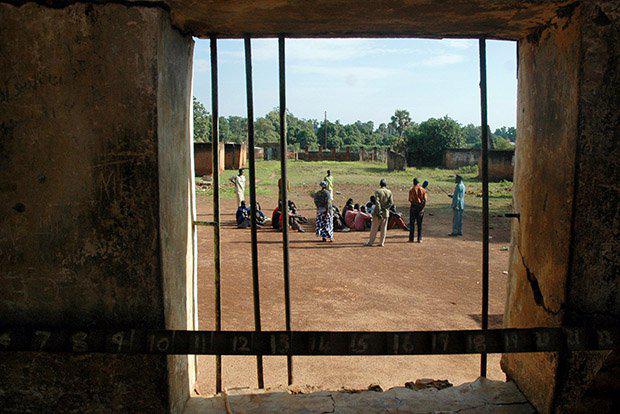
The penalty for same-sex relationships: five years in prison to the death penalty
Same-sex marriage: prohibited
The possibility of adoption of children by same-sex partners: no
Anti-discrimination laws: no
Sharia, which form the basis of legislation of the North African States, expressly prohibit homosexual acts, even allowing for the punishment for a man disguised as a woman. For violation of this rule a Sudanese court sentenced one 19 young people to the penalty of 30 lashes each and large (by local standards) to a fine of $ 400. If the court has been proved that the participants in the party is not just dressed in women's clothes, and sexual intercourse, the punishment could be much more severe - including the death penalty.
Tanzania
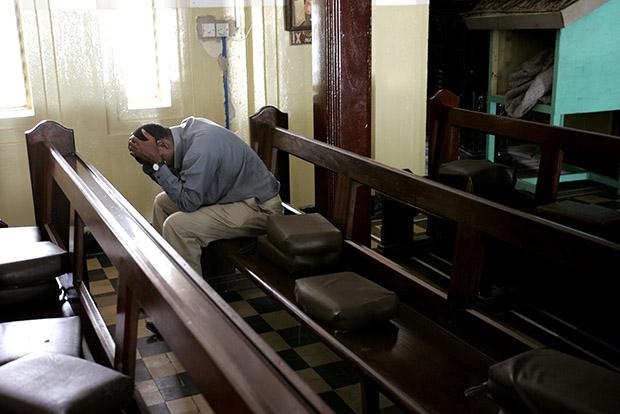
The penalty for same-sex relationships: life imprisonment
Same-sex marriage: prohibited
The possibility of adoption of children by same-sex partners: no
Anti-discrimination laws: no
In 2010, President Jakaya Kikwete of Tanzania denied accreditation to one of the diplomats representing Western Europe, on the basis of his sexual orientation. Just tough Tanzanian authorities reacted to the threat of British Prime Minister David Cameron to deprive the country of the financial assistance, if she refuses to respect the rights of sexual minorities, "We do not agree to legalize this nonsense, to get help and money," - said the head of the Tanzanian Foreign Minister Bernard Membe.
Barbados
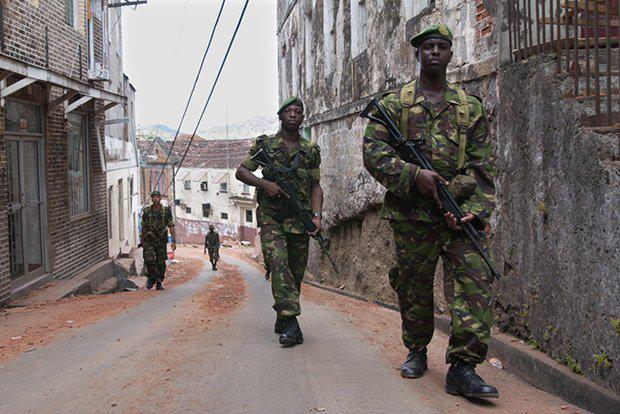
The penalty for same-sex relationships: life imprisonment
Same-sex marriage: prohibited
The possibility of adoption of children by same-sex partners: no
Antidiscrimination laws: no
Just how tough the power of this island nation to respond to a public manifestation of homosexuality, can be judged by the following fact. None of the largest cruise agency specializing in organizing trips for supporters of same-sex love, does not include a list of items in Barbados visit. Travelers gay specifically warned of the dangers of visiting the island and even more manifestations of his inclinations, which can cause not only domestic violence, but also harsh criminal penalties - up to life imprisonment.
Saudi Arabia
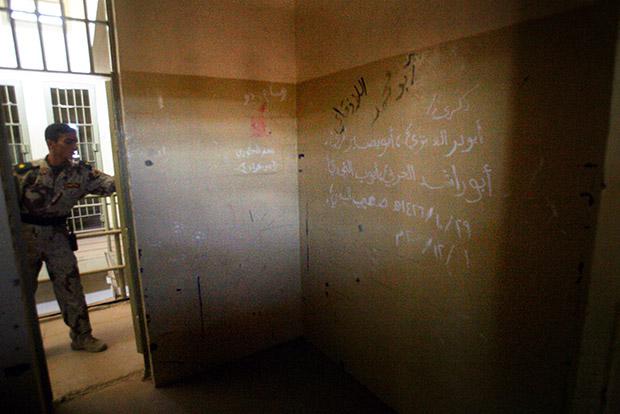
The penalty for same-sex relationships: the death penalty
Same-sex marriage: prohibited
The possibility of adoption of children by same-sex partners: no
Anti-discrimination laws: no
Perhaps the most famous case of the death penalty for homosexuality in Saudi Arabia - a public beheading with a sword of three convicted of sodomy in 2000. This judgment has become widely known outside of the country and caused a lot of protests, which, however, no real consequences failed. The only direct consequence - the inclusion of Saudi Arabia to the list of countries to which people with different sexual orientation is not recommended to go on vacation.
UAE
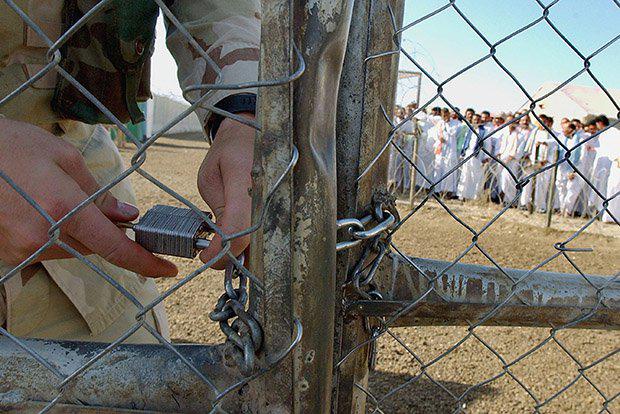
The penalty for same-sex relationships: the death penalty
Same-sex marriage: prohibited
The possibility of adoption of children by same-sex partners: no
Anti-discrimination laws: no
A striking example of the official reaction of the authorities in the UAE homosexual relations can serve the sentence imposed two lesbians - a citizen of Bulgaria and Lebanon, accused of unnatural public hugs and kisses. They spent a month in prison, after which they were extradited. Such punishment can be regarded as unusually mild: if in place of foreign nationals were the UAE, for their case would have ended the death penalty by beheading.
Iran
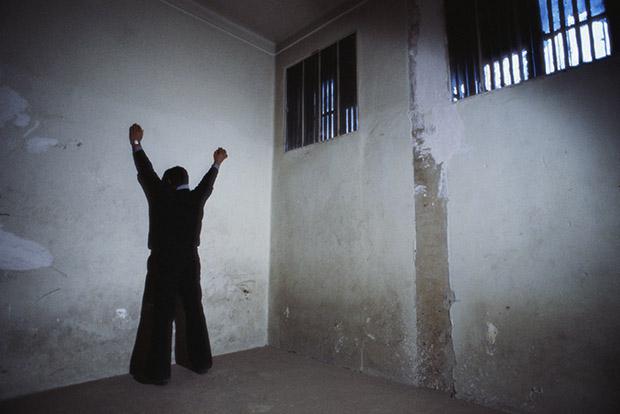
The penalty for same-sex relationships: the death penalty
Same-sex marriage: prohibited
The possibility of adoption of children by same-sex partners: no
Anti-discrimination laws: no
The loudest event that demonstrates the attitude of the Iranian authorities to homosexuality, was the execution in 2005 of two underage youths accused of same-sex love - Mahmoud Asgari and Ayaz Marhoni. The court's verdict has been carried out despite the protests and official notes from the most developed countries of the world. Tehran has not responded to the demand for a moratorium on the death penalty for homosexuals, or in principle to abandon the prosecution of sexual orientation. And last year, the head of Iran's High Council for Human Rights Javad Larijani said that the country's authorities believe homosexuality is a "manifestation of immorality and disease».
Pakistan
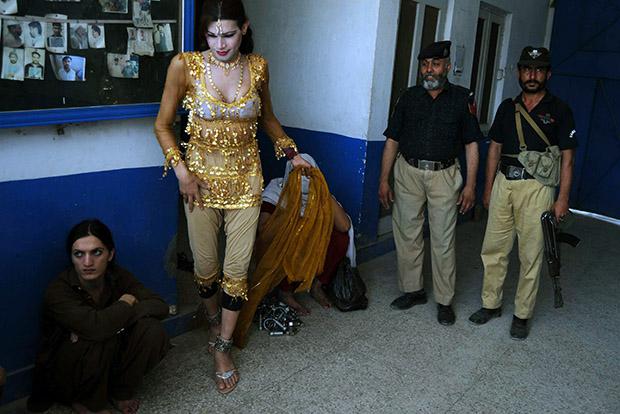
The penalty for same-sex relationships: life imprisonment
Same-sex marriage: prohibited
The possibility of adoption of children by same-sex partners: no
Anti-discrimination laws: no
The Constitution of Pakistan did not directly stipulate a ban on homosexuality, but these relationships are considered to be illegal and punishable by Sharia, which operate in the country since 1990. In 2011, Pakistan's largest Islamic party "Jamaat-i-Islami," issued a statement which said: "These people (homosexuals) - now curse and the dregs of society. They do not deserve to be called Muslims or Pakistanis ».
Malaysia
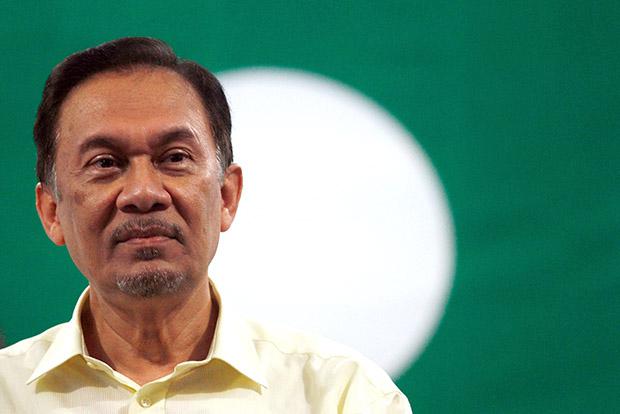
The penalty for same-sex relationships: up to 20 years in prison
Same-sex marriage: prohibited
The possibility of adoption of children by same-sex partners: no
Anti-discrimination laws: no
A year ago, in January of 2012, Malaysian court acquitted a second time the former deputy prime minister, leader of the opposition movement of Malaysia Anwar Ibrahim. The first time he was accused of same-sex relationships in 1998 - just after the relationship between Ibrahim and Prime Minister Mahathir Mohamad strained due to the difference of approaches to mitigate the effects of the global financial crisis for Malaysia. On charges of corruption and sodomy Ibrahim was sentenced to 15 years in prison, but in 2004 the sentence was reviewed and all charges dropped. The second trial began in 2008 and lasted almost three years, but again ended justification for the policy.
Sudan

The penalty for same-sex relationships: five years in prison to the death penalty
Same-sex marriage: prohibited
The possibility of adoption of children by same-sex partners: no
Anti-discrimination laws: no
Sharia, which form the basis of legislation of the North African States, expressly prohibit homosexual acts, even allowing for the punishment for a man disguised as a woman. For violation of this rule a Sudanese court sentenced one 19 young people to the penalty of 30 lashes each and large (by local standards) to a fine of $ 400. If the court has been proved that the participants in the party is not just dressed in women's clothes, and sexual intercourse, the punishment could be much more severe - including the death penalty.
Tanzania

The penalty for same-sex relationships: life imprisonment
Same-sex marriage: prohibited
The possibility of adoption of children by same-sex partners: no
Anti-discrimination laws: no
In 2010, President Jakaya Kikwete of Tanzania denied accreditation to one of the diplomats representing Western Europe, on the basis of his sexual orientation. Just tough Tanzanian authorities reacted to the threat of British Prime Minister David Cameron to deprive the country of the financial assistance, if she refuses to respect the rights of sexual minorities, "We do not agree to legalize this nonsense, to get help and money," - said the head of the Tanzanian Foreign Minister Bernard Membe.
Barbados

The penalty for same-sex relationships: life imprisonment
Same-sex marriage: prohibited
The possibility of adoption of children by same-sex partners: no
Antidiscrimination laws: no
Just how tough the power of this island nation to respond to a public manifestation of homosexuality, can be judged by the following fact. None of the largest cruise agency specializing in organizing trips for supporters of same-sex love, does not include a list of items in Barbados visit. Travelers gay specifically warned of the dangers of visiting the island and even more manifestations of his inclinations, which can cause not only domestic violence, but also harsh criminal penalties - up to life imprisonment.
Saudi Arabia

The penalty for same-sex relationships: the death penalty
Same-sex marriage: prohibited
The possibility of adoption of children by same-sex partners: no
Anti-discrimination laws: no
Perhaps the most famous case of the death penalty for homosexuality in Saudi Arabia - a public beheading with a sword of three convicted of sodomy in 2000. This judgment has become widely known outside of the country and caused a lot of protests, which, however, no real consequences failed. The only direct consequence - the inclusion of Saudi Arabia to the list of countries to which people with different sexual orientation is not recommended to go on vacation.
UAE

The penalty for same-sex relationships: the death penalty
Same-sex marriage: prohibited
The possibility of adoption of children by same-sex partners: no
Anti-discrimination laws: no
A striking example of the official reaction of the authorities in the UAE homosexual relations can serve the sentence imposed two lesbians - a citizen of Bulgaria and Lebanon, accused of unnatural public hugs and kisses. They spent a month in prison, after which they were extradited. Such punishment can be regarded as unusually mild: if in place of foreign nationals were the UAE, for their case would have ended the death penalty by beheading.
Iran

The penalty for same-sex relationships: the death penalty
Same-sex marriage: prohibited
The possibility of adoption of children by same-sex partners: no
Anti-discrimination laws: no
The loudest event that demonstrates the attitude of the Iranian authorities to homosexuality, was the execution in 2005 of two underage youths accused of same-sex love - Mahmoud Asgari and Ayaz Marhoni. The court's verdict has been carried out despite the protests and official notes from the most developed countries of the world. Tehran has not responded to the demand for a moratorium on the death penalty for homosexuals, or in principle to abandon the prosecution of sexual orientation. And last year, the head of Iran's High Council for Human Rights Javad Larijani said that the country's authorities believe homosexuality is a "manifestation of immorality and disease».
Pakistan

The penalty for same-sex relationships: life imprisonment
Same-sex marriage: prohibited
The possibility of adoption of children by same-sex partners: no
Anti-discrimination laws: no
The Constitution of Pakistan did not directly stipulate a ban on homosexuality, but these relationships are considered to be illegal and punishable by Sharia, which operate in the country since 1990. In 2011, Pakistan's largest Islamic party "Jamaat-i-Islami," issued a statement which said: "These people (homosexuals) - now curse and the dregs of society. They do not deserve to be called Muslims or Pakistanis ».
Malaysia

The penalty for same-sex relationships: up to 20 years in prison
Same-sex marriage: prohibited
The possibility of adoption of children by same-sex partners: no
Anti-discrimination laws: no
A year ago, in January of 2012, Malaysian court acquitted a second time the former deputy prime minister, leader of the opposition movement of Malaysia Anwar Ibrahim. The first time he was accused of same-sex relationships in 1998 - just after the relationship between Ibrahim and Prime Minister Mahathir Mohamad strained due to the difference of approaches to mitigate the effects of the global financial crisis for Malaysia. On charges of corruption and sodomy Ibrahim was sentenced to 15 years in prison, but in 2004 the sentence was reviewed and all charges dropped. The second trial began in 2008 and lasted almost three years, but again ended justification for the policy.













